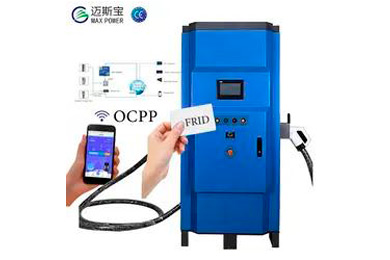
Electric vehicles (EVs) require charging to replenish their battery power. While alternating current (AC) charging is commonly used for home and workplace charging, direct current (DC) charging is essential for fast charging at public charging stations and is becoming increasingly popular. Understanding the DC charging current of EVs is crucial for optimizing charging efficiency and determining the charging time.
The DC charging current of an electric vehicle depends on several factors:
Battery Capacity: The charging current is limited by the capacity of the vehicle's battery. Higher battery capacity allows for a larger charging current and faster charging times.
Charging Infrastructure: The available power output of the DC charger plays a significant role in determining the charging current. Different charging stations offer varying power levels, ranging from 50 kW to 350 kW or more. The charger's power rating directly impacts the maximum charging current attainable by the EV.
Battery Management System (BMS): The BMS in an electric vehicle monitors the battery's state of charge, temperature, and other crucial parameters. It communicates with the charger to regulate the charging current and ensure the battery's safety and longevity. The BMS can reduce or increase the charging current based on these conditions.
There are several DC charging standards used by different EV manufacturers and dc ev charging station operators. The most common standards are:
CHAdeMO: Developed by Japanese manufacturers, CHAdeMO is widely used for fast charging in Asian and European markets. The current CHAdeMO protocol can provide up to 100 kW of charging power, with plans for future upgrades allowing for even faster charging.
CCS (Combined Charging System): Developed by a consortium of European and North American manufacturers, CCS is popular in Europe and is gaining popularity in North America. CCS supports higher power levels, with the latest versions allowing up to 350 kW of charging power.
Tesla Supercharger: Designed exclusively for Tesla vehicles, the Supercharger network provides high-speed charging at up to 250 kW. However, it is only compatible with Tesla EVs and requires a Tesla-specific charging port.
To optimize DC charging efficiency and reduce charging times, consider the following:
Use Fast Charging Stations: Fast charging stations with higher power output can provide faster charging. Choosing a charger with a power level compatible with your vehicle allows for a higher charging current.
Monitor Battery Temperature: Extreme temperatures can affect the charging speed and overall battery health. Avoid charging at extremely low or high temperatures to maintain optimal charging efficiency.
Plan Charging Sessions: Take advantage of charging during off-peak hours when there is less demand on the electrical grid. This can result in lower charging costs and potentially faster charging due to less network congestion.
MaxPower popular products: EV mobile charger, DC wallbox charger, dc ev car charger, etc. Contact us now.
The DC charging current of electric vehicles is influenced by battery capacity, charging infrastructure, and battery management systems. Understanding the factors affecting charging current can help optimize the charging efficiency and reduce the overall charging time. By considering the available charging standards and following best practices, electric vehicle owners can make the most of DC fast charging and ensure a smooth charging experience.